Citizenship reference letter template
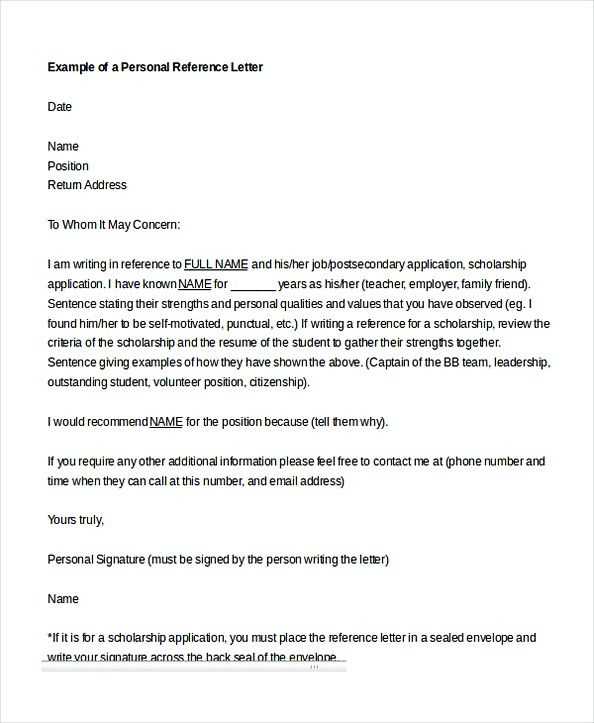
Writing a citizenship reference letter requires clear, specific details that highlight the applicant’s qualifications and character. This type of letter is meant to vouch for an individual’s suitability for citizenship based on their contributions to the community, good moral standing, and adherence to the values of the country. A strong letter should provide concrete examples of the applicant’s positive behavior and personal integrity.
Focus on describing the applicant’s involvement in community activities, employment history, and their overall contributions to society. If the person has demonstrated a commitment to social responsibility, honesty, or has a history of helping others, include these points. Personal anecdotes that show the applicant’s reliability, kindness, or leadership will reinforce their character. Be sure to mention how long you have known the applicant and in what capacity.
Keep the tone formal but sincere. Avoid generalities and vague statements. Specific examples add credibility and help the reader understand why the applicant is a suitable candidate for citizenship. It is also important to state that you have no reason to believe the applicant is a threat to public order or safety. Conclude by offering to provide additional information if needed.
Here’s the revised version with reduced repetition:
Focus on conciseness. Remove redundant phrases that do not add new information. For example, instead of stating “I highly recommend this person for citizenship because of their qualities,” specify those qualities directly: “This person is hardworking, reliable, and contributes positively to the community.”
Use clear, direct language. Avoid restating the same point in different ways. For instance, “I have known this individual for five years, and during this time, they’ve demonstrated excellent leadership skills” can be trimmed to “I’ve known this individual for five years and have witnessed their leadership firsthand.”
Make the letter’s purpose clear from the beginning and stay focused on providing evidence that supports citizenship. Trim unnecessary details that do not reinforce this purpose.
- Citizenship Reference Letter Template
Begin the letter with a clear introduction of your relationship with the individual seeking citizenship. Specify how long you’ve known them and in what capacity, whether personal, professional, or both.
- State your full name, address, and contact information at the beginning.
- Explain your position in relation to the applicant. This helps clarify your credibility as a reference.
Include details on the individual’s character, mentioning qualities like reliability, honesty, and respect for the law. Provide specific examples of their positive behavior that support their claim for citizenship.
- Give concrete examples of their community involvement or contributions.
- Ensure you emphasize their dedication to becoming a contributing member of society.
In the conclusion, express your confidence in the applicant’s ability to meet the requirements for citizenship. Offer to provide additional information if needed and provide your contact details again for further inquiries.
- Conclude with a formal closing, such as “Sincerely” or “Best regards,” followed by your signature.
Maintain a respectful, professional tone while keeping it warm and personal. A good reference letter strikes a balance between being formal and approachable, ensuring your endorsement feels genuine yet respectful. Avoid sounding overly rigid or too casual.
How to Adjust the Tone Based on the Situation
- If the applicant is a close colleague or friend, use a slightly informal tone, but keep the language respectful.
- For a more formal letter, particularly for legal or official matters, stick to a neutral, respectful tone, avoiding personal anecdotes that may detract from professionalism.
- If the person you’re recommending is applying for a serious position or status, opt for a tone that conveys authority and trustworthiness.
Creating an Impactful Yet Balanced Tone
- Avoid exaggerated praise. Offer clear examples of the applicant’s strengths without overstatements.
- Be specific about the qualities you admire and provide examples to back your words. This helps to add authenticity to your recommendation.
- Be concise and direct. Ensure that your sentences convey your message clearly, without sounding overly verbose.
Provide a clear introduction stating your relationship with the applicant. Specify how long you’ve known them and the context in which you’ve interacted. This helps establish your credibility as a reference.
Outline the applicant’s qualities and character traits that make them a suitable candidate for citizenship. Mention their integrity, respect for the law, and positive contributions to the community.
Include details of the applicant’s employment or volunteer work, highlighting their commitment and reliability. If relevant, reference any awards, recognitions, or responsibilities they’ve had that showcase their involvement.
If applicable, provide examples of how the applicant has demonstrated responsibility and trustworthiness in various situations. This could include personal or professional contexts where their actions have reflected good moral character.
Conclude with a statement of support for the applicant’s citizenship application. Reinforce your confidence in their ability to positively contribute to society as a citizen.
Begin by addressing the recipient with a formal salutation. Use “Dear [Title] [Last Name],” if the recipient’s name is known. If unsure, opt for a neutral “To Whom It May Concern.” Ensure you are using the correct title, such as Mr., Ms., or Dr., based on the recipient’s professional designation or preference.
Key Points to Remember
- Always verify the recipient’s title and name for accuracy.
- If the reference is for a specific institution or authority, direct the letter to the correct department or office.
- If the recipient’s name is not known, use a general but formal greeting.
Examples of Addressing
| Situation | Salutation |
|---|---|
| Known recipient | Dear Dr. Smith, |
| Unknown recipient | To Whom It May Concern, |
| Specific department | Dear Admissions Committee, |
Common Mistakes to Avoid When Writing a Letter
Ensure the tone is appropriate for the recipient and context. Avoid sounding too casual or overly formal unless necessary. Tailor your language to the person you’re addressing.
1. Failing to Address the Purpose Clearly
State the purpose of the letter upfront. Readers should not be left guessing the reason for the letter, as it could confuse or delay the process.
2. Including Unnecessary Information
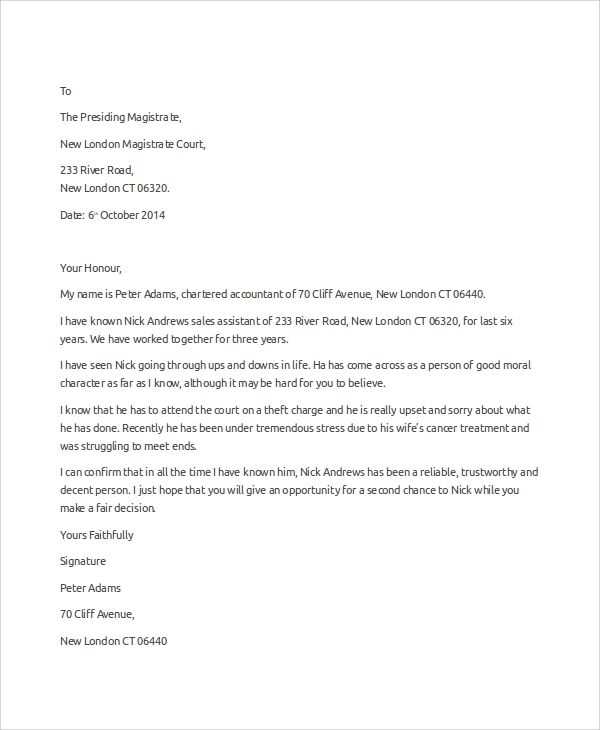
- Stick to the key points relevant to the request or subject matter.
- Avoid personal anecdotes or off-topic discussions that can distract from the letter’s goal.
3. Ignoring Proper Structure
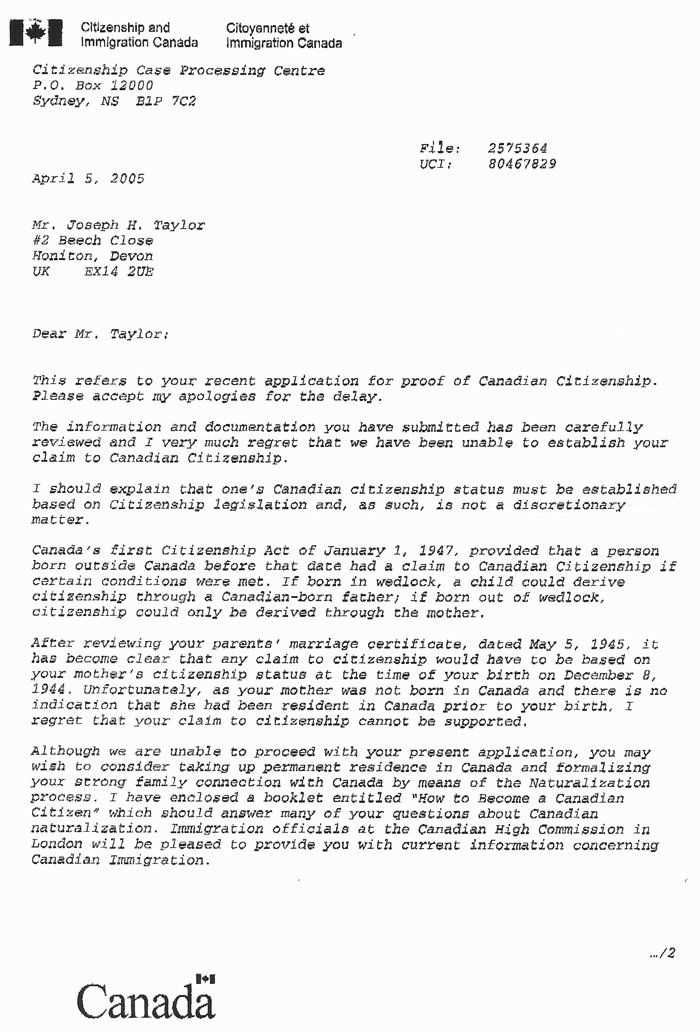
- Follow a clear structure: introduction, body, conclusion.
- Use paragraphs to separate ideas and make the text easier to follow.
4. Using Generic or Vague Language
Be specific. Avoid broad terms like “great” or “amazing,” and provide clear examples of the applicant’s qualifications or experiences.
5. Forgetting to Proofread
- Check for spelling, grammar, or punctuation mistakes.
- Ensure there are no confusing sentences or awkward phrasing.
6. Using Overly Complicated Sentences
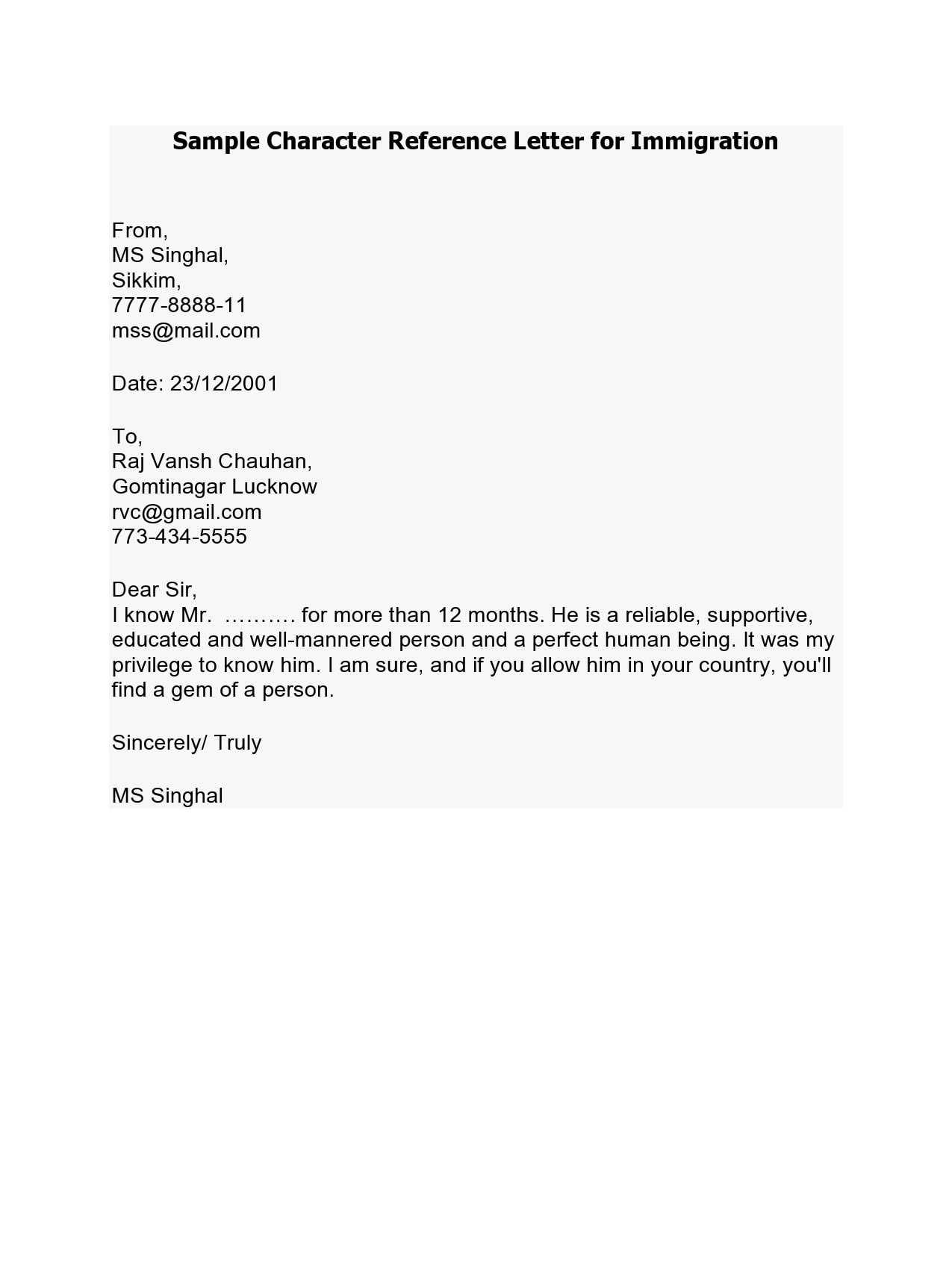
Simple, clear sentences are easier to read and understand. Avoid using convoluted language or overly complex sentence structures.
7. Neglecting the Letter’s Formatting
- Ensure your margins, font size, and alignment are consistent.
- Leave enough white space for clarity and readability.
Focus on the key elements required by the immigration or citizenship authority. Ensure that the letter addresses the specific criteria set out by the application guidelines. If the guidelines ask for proof of community involvement, make sure to highlight relevant experiences or contributions. For example, if you are applying for citizenship in a country that values civic engagement, mention your volunteer work, memberships in local organizations, or any role you’ve played in community projects.
Match the Letter to the Country’s Citizenship Values
Each country has its own set of values and priorities when granting citizenship. Research what qualities the country seeks in applicants. If the application emphasizes professional achievements, provide examples of your career growth, recognitions, and contributions. Highlight areas that demonstrate your alignment with the nation’s values, whether it’s economic contributions, cultural integration, or long-term commitment.
Be Specific and Provide Evidence
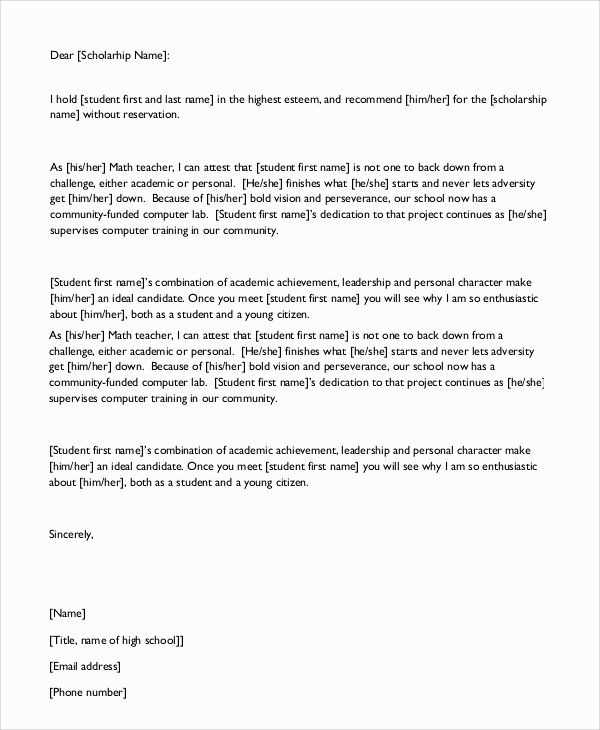
Do not generalize. Provide concrete evidence wherever possible. If you mention your long-term residence or ties to the community, support this with specific dates, organizations, or events. Ensure your language reflects the country’s formal requirements, avoiding unnecessary embellishments and sticking to the facts. Tailor your tone and style to match the seriousness and formality of the application process, keeping it clear and to the point.
Keep your reference letter clear and to the point. Use a direct and confident tone to highlight key strengths and experiences. Structure your letter in a way that ensures the reader can easily find the information they need.
Introduction
Start by introducing yourself and your relationship to the person. Be specific about the context in which you know them and how long you’ve worked together.
Example: “I have had the pleasure of working with Jane Doe for the past three years at XYZ Corporation, where she has served as a senior project manager.”
Skills and Qualities
Describe the person’s qualities that make them an excellent candidate for citizenship. Focus on character traits, skills, and achievements that are relevant to their application.
Example: “Jane has consistently demonstrated outstanding leadership and problem-solving abilities. Her work ethic and attention to detail are second to none, making her an invaluable asset to our team.”
Conclusion
End by reiterating your strong support and offering a clear recommendation. Provide your contact information in case the reader needs further clarification.
Example: “I wholeheartedly recommend Jane Doe for citizenship, as she has shown unwavering dedication and exceptional qualities that will serve her well in any community. Please feel free to contact me at [phone number] or [email] for any additional information.”
Table of Examples
| Section | Example Phrase |
|---|---|
| Introduction | “I have had the privilege of knowing [Name] for [X] years in a professional capacity.” |
| Skills and Qualities | “[Name] has demonstrated exceptional [skills] and has consistently shown great [trait].” |
| Conclusion | “I fully support [Name]’s application and am confident in their ability to contribute positively to [country/community].” |
Key Components of a Citizenship Reference Letter
Begin with a brief introduction of yourself, your relationship with the applicant, and how long you’ve known them. Mention their character and reliability, providing concrete examples of their positive traits.
Next, include a section highlighting the applicant’s commitment to the community. Provide specific instances where they contributed positively, such as volunteering, supporting local causes, or participating in civic activities.
Conclude with a strong endorsement of the applicant’s suitability for citizenship. Use clear, sincere language to express your confidence in their ability to contribute to society and uphold its values.